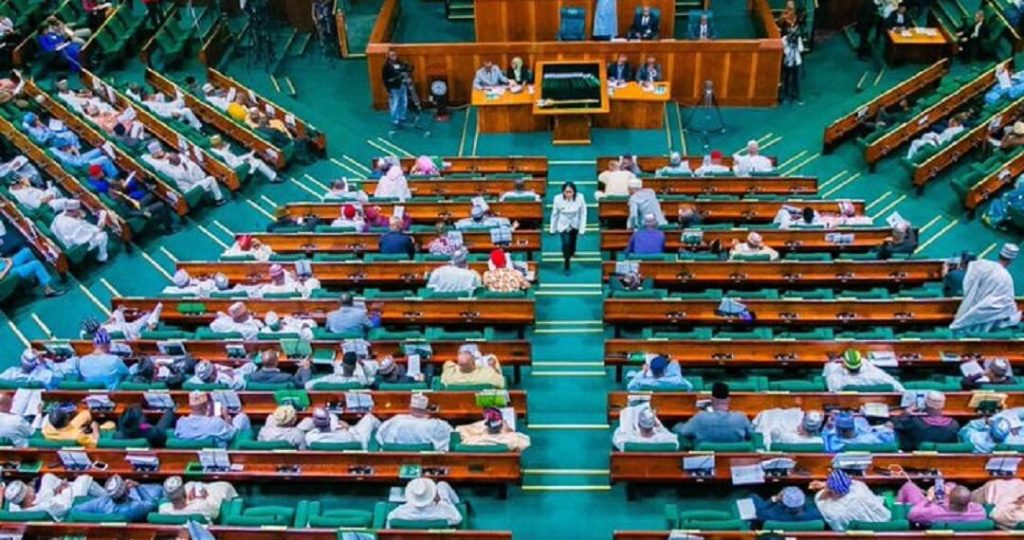Nigeria’s House of Representatives has temporarily shelved a bill aiming to elevate the minimum educational qualifications required for political office seekers in Nigeria, following its rejection by certain lawmakers.
Entitled “A Bill For An Act To Alter The 1999 Constitution Of The Federal Republic Of Nigeria (As Amended) To Change The Educational Qualification For Election Into Certain Political Offices And For Related Matters,” the bill was put forth by Yeyeoba Onanuga.
Presenting arguments in support of the bill, Onanuga emphasised its objective to enhance the value of education within Nigeria’s political landscape.
“Mr Speaker, I introduce to this chamber a bill for an act to alter the 1999 constitution of the Federal Republic of Nigeria (as amended) to change the educational qualifications for election into certain political offices and for related matters.
She continued, “Mr Speaker, honourable colleagues, this is not a bill targeted at stifling the interest of Nigerians in politics; rather, it is a bill that will help Nigerians sufficiently prepare for the humongous task of political leadership. As we have begun to see, the race for elective offices at both state and national levels has become increasingly competitive. While this is good as a tenet of universal suffrage, it can also be counterproductive if people who are not sufficiently prepared educationally, get into these elective offices.
“Honourable colleagues, all the political offices affected by this amendment are very strategic in their own right. The state legislators are important for making laws to govern the State in the interest of the people. The office of the governor is the highest political office in the state. The federal legislators are important for making laws in the interest of the nation. The Office of the President is the highest political office in the land. If a managing director who holds an equally strategic position in a company within this country, cannot be employed without a university degree or its equivalent, why should the above political offices be held by people without a university degree or its equivalent?
“Mr Speaker, Honourable colleagues, we all know that after a university degree or its equivalent in this country, comes the compulsory National Youth Service Corp, without which it would be difficult to get into any employment, especially within the public sector.
“Invariably, by leaving the qualification of this political office to remain at the school certificate level, we are implying that the NYSC is not a requirement to hold political offices, but it is a requirement to secure a job in the public sector,” Onanuga argued.
She further emphasised that this bill underscores the value our 10th Assembly places on educational attainment vis-à-vis political aspirations, ultimately shaping the calibre of candidates vying for elective offices. Otherwise, how can they justify insisting on a university degree for a future doctor while relegating presidential aspirations to the attainment of a mere school certificate?”
Onanuga highlighted that contemporary educational standards worldwide, particularly at the university level, equip individuals with indispensable knowledge, skills, and readiness not achievable at the secondary school level.
“This is not to say that only those with a university degree can lead well, all we will be saying is that we would rather start from there, and I believe we can all agree that a university degree is a good place to benchmark the educational qualifications into certain political offices. To agree otherwise will in the long run do our polity and youths a great disservice,” she concluded.
Following spirited deliberations both in favour and against the motion, Onanuga acquiesced to temporarily shelving the bill, following the advice of Deputy Speaker Benjamin Kalu, pending further deliberation and lobbying efforts.

